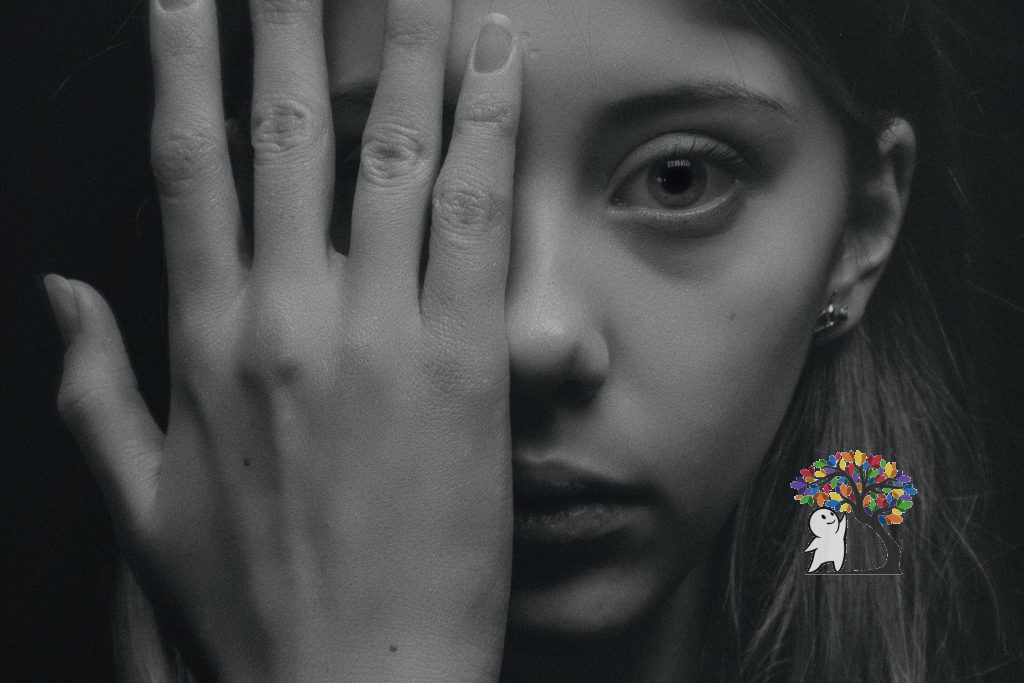11 Signs You Might Be suffering from Complex PTSD

Disclaimer. This article is for educational and informative purposes. Do not utilize this article as a rubric for self-diagnosis. If you believe that the points made in this article apply to you, please seek professional medical help.
Many of us are aware of post-traumatic stress disorder. According to the DSM-5, PTSD is Cluster C disorder that occurs in people who have experienced or witnessed a traumatic event such as a natural disaster, a serious accident, a terrorist act, war/combat, or rape or who have been threatened with death, sexual violence or serious injury (APA, 2013a).
PTSD causes a person to feel shame or guilt as a result of the trauma, develop a horrible self-image, become less interested in participating in daily activities, become estranged from others, have marked mood swings, sleep problems, and even engage in reckless and self-harming behaviors.
Although complex post-traumatic stress disorder or C-PTSD shares similar symptoms to PTSD, it is a different type of disorder. According to the ICD-10, C-PTSD is a result of multiple traumatic events occurring or enduring trauma for an extended period. Typically, it is observed in children who experience a form of childhood trauma (neglect or abandonment), child soldiering, or severe domestic violence. However, other factors can bring about trauma and lead to the development of C-PTSD.
Below are a few signs that you might be suffering from complex PTSD.
- You have difficulty controlling your emotions.
You may experience emotions like irritability, anger, or apathy and not understand why. Sometimes, you may not even be sure of what it is that you are feeling. When something happens to you, your affect is not proportional or appropriate to what happened. For example, you feel left out at a group gathering. As a result of being marginalized, you may engage in binge behavior to numb the pain or embarrassment of being left out.
Affect dysregulation is more than a byproduct of enduring repetitive trauma. It is a vital component of C-PTSD. During trauma, the emotions learned do not fall into healthy behavioral patterns because the environment never provided the appropriate examples.
People with C-PTSD experience raw emotional pain and most times do not know how to label it and much less cope with it. Fortunately, emotional grounding techniques can help. If you are having trouble, please reach out to a therapist who knows how to treat C-PTSD.
- You have intrusive thoughts and/or flashbacks.
Intrusive thoughts and emotional flashbacks are very real components of living with C-PTSD. These alterations in cognition can last anywhere from a few seconds to hours and are as distressing as the trauma itself. Though intrusive thoughts and flashbacks harp away at a survivor’s mind, they are different.
Intrusive thoughts are often involuntary, whereas flashbacks are triggered. Intrusive thoughts occur randomly and can take shape of an image, idea, or fantasy of self-harm. These thoughts are incredibly distressing and sometimes can occupy your mind for hours. With flashbacks, usually, something directly or indirectly related to the trauma triggers them.
Working with a therapist might help you handle these symptoms better. With therapy, you will learn tools that will help you recognize the thought and change it.
- You experience disassociation.
Conversely, you can also experience bouts of disassociation. During trauma, your brain creates coping mechanisms. The most obvious one is disassociation– where you remove your cognition from what is happening to you. Disassociation is a protective response to trauma. It separates you from the trauma and helps you live life without having to cope with the overwhelming emotional burden.
For those with C-PTSD, disassociation can feel like an out-of-body experience. You lose touch with your perception, memories, feelings, behaviors, and yourself. It can feel like you are watching yourself do things (this is called depersonalization).
But, disassociation is complex and does not always manifest itself as depersonalization or derealization. It can also cause you to have significant gaps in memory, especially if they relate to your trauma, and even lead to a fragmented personality or DID.
Disassociation is a consequence of trauma that can interfere with your life. If you experience disassociation, discuss with a therapist or medical professional treatment options.
- You are in a state of high alert.
Even without any real threats around, you may feel like you are in a state of high alert. Whenever you are placed in a dangerous situation, your body automatically enters into fight or flight. Typically, this feeling passes away once the danger is removed.
For someone with PTSD and C-PTSD, the danger never really leaves. Your body still assumes that it is in danger. At times, your guarded attitude may be exacerbated if you experience a flashback.
- You dislike spontaneity.
As a result, you dislike spontaneity. Spontaneity means change. Sometimes, that change can be a trigger.
Because you may be on high alert at all times, you avoid situations that you are not familiar with.
- You sometimes use work to mask or ignore internal pain.
Similarly, work and routine can sometimes be a haven for someone with C-PTSD. Work is often used as a tactic to ward off any sense of danger or doom. Sometimes, it can be a form of validation. Work provides structure as well as the opportunity to feel worthy.
However, linking your worth to your work can also adverse effects because one slip-up of someone’s failure to validate what you do can make you doubt your worth.
- You have an alarmingly negative self-image.
As a result of experiencing extended trauma, your self-worth and image plummet. Our sense of self begins to develop during childhood and early adolescence. However, if you endured trauma during that time, your development was interrupted.
It is possible and most likely probable for you to have absorbed your abuser’s perception of who you are, and therefore find it incapable of seeing yourself as who you are– capable, strong, brave. At times, you may feel responsible for the trauma or defined by it. Hence, you might ignore positive compliments or attributes about yourself.
However, one day and with a lot of work, it might be possible to change how you see yourself.
- You are attracted to bad relationships.
One consequence of poor self-image and self-worth is falling into toxic relationships. You might know that engaging in a relationship is not healthy, but you enter it anyway. Why? Sometimes, the sad reason is that it feels familiar.
Conversely, you may be attracted to someone unavailable. The reason might also be because it feels familiar.
If you find that you gravitate toward relationships that do not serve you, reach out to a therapist.
- You have difficulty forming relationships.
With everything you have endured, it is natural to find it hard to form relationships. Trauma can rob you of the chance. It can instill distrust for others, make you feel isolated, and even push you into toxic relationships because they feel familiar.
In some cases, the fear of being vulnerable can prevent you from establishing quality relationships.
- You dislike being coddled.
Many survivors of C-PTSD who experience trauma in childhood develop an insecure or avoidant attachment style. The combination of danger, neglect, and abandonment experienced during childhood can lead you to withdraw from a relationship or avoid relationships altogether.
Having an avoidant attachment style coupled with a low self-image may cause you to feel uncomfortable whenever someone is kind to you. You may even feel as though the other person has an ulterior motive.
- You are apathetic towards life or living.
C-PTSD survivors can sometimes feel overwhelmed by what they are going through. Their trauma can cast darkness over their lives and diminish their outlook on life.
The world can look dull and gray, and they might not feel ecstatic about living. In extreme cases, they might not have any will to live.
It is a sad reality for some, but please seek professional help. Regardless of how things were or currently are, it will get better (if not at least a bit more tolerable).
Living with the aftermath of trauma is difficult. It changes you fundamentally, and because of it, you may feel as though you cannot or will never be yourself. But, you are safe now. The trauma happened, and that part you cannot change. But, allow yourself to digest what happened. Recognize that you are brave and courageous for having to endure something for many years. Give yourself that, and slowly repair yourself.
Throughout the process, be kind and compassionate to yourself. Work with a therapist who listens to you and understands you, and is trained in trauma work. Learn to give yourself the love that was denied to you so that you can heal.
Sources:
Botton, Alain De. “Signs You Might Be Suffering from Complex PTSD .” The School of Life Articles, 13 Jan. 2021, www.theschooloflife.com/thebookoflife/signs-you-might-be-suffering-from-complex-ptsd/.
Bridges to Recovery. “Complex PTSD Symptoms, Behavior and Treatment.” Bridges to Recovery, 2020, www.bridgestorecovery.com/post-traumatic-stress-disorder/complex-ptsd-symptoms-behavior-and-treatment/.
Franco, Fabiana. “Attachment and C-PTSD: How Complex Trauma Gets in the Way.” GoodTherapy.org Therapy Blog, 19 Mar. 2018, www.goodtherapy.org/blog/attachment-and-c-ptsd-how-complex-trauma-gets-in-the-way-0322185.
Jones, Heather. “Signs of Complex PTSD.” Verywell Health, 8 Jan. 2021, www.verywellhealth.com/complex-ptsd-5094628.
Leonard, Jayne, and Timothy J. Legg. “Complex PTSD: Symptoms, Behaviors, and Recovery.” Medical News Today, MediLexicon International, 28 Aug. 2018, www.medicalnewstoday.com/articles/322886.
Mind. “What Is Complex PTSD?” Mind, Jan. 2021, www.mind.org.uk/information-support/types-of-mental-health-problems/post-traumatic-stress-disorder-ptsd-and-complex-ptsd/complex-ptsd/.
Tull, Matthew. “How a Diagnosis of Complex PTSD Differs From PTSD.” Verywell Mind, 11 Mar. 2021, www.verywellmind.com/what-is-complex-ptsd-2797491.




Responses